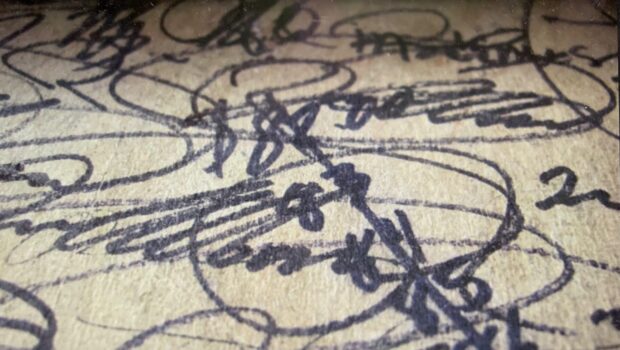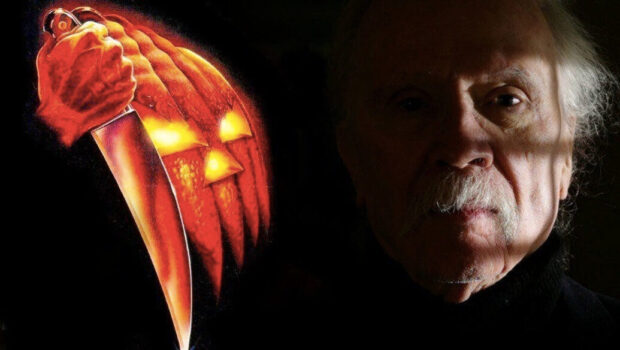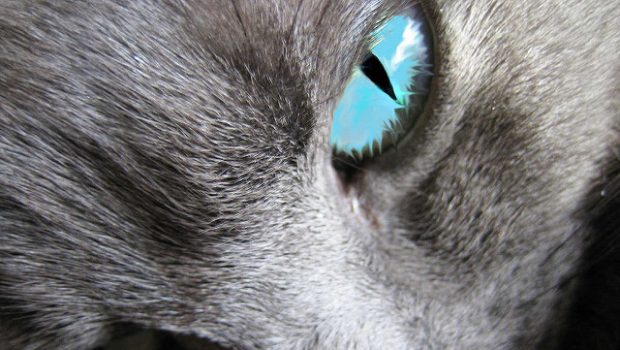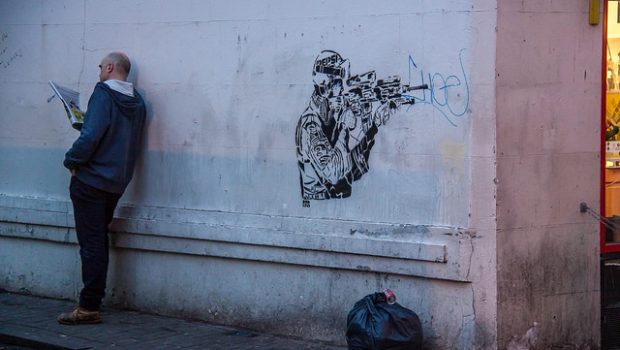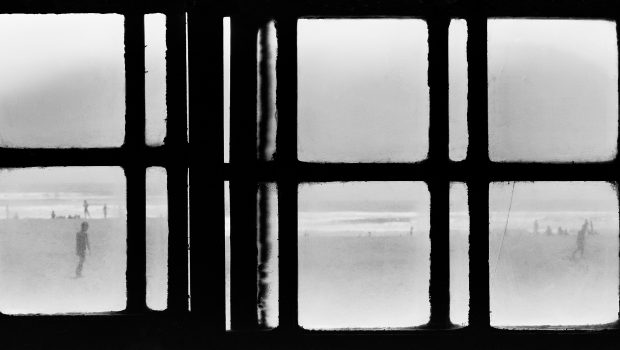The Functionary’s Story
Leonardo Garzaro
Translated by Emyr Humphreys
It was said that a man who kept names lived in those parts, and it was easier for the visitor to find the town, street and house than he had thought. It was as if asking for directions were merely a formality; the horse cart drivers, grocers and managers already knew where he was headed, as if they recognised it in his expression, or simply because that was where they all went. They all answered him by raising their arms in the same efficient gesture. All he had to do was head in that direction and ask once more, some way further along, paying no attention to what the politicians had named the streets, bypasses and bridges along the way. It was a long journey, and the newly bought colt was a comfortable ride. Despite heading through strange new lands he’d only ever heard of, strangers gave directions with an ease that afforded him the pleasant sensation of being on the outskirts of his hometown.
The modest house was set in a lively street inundated with hollering vendors and milling pedestrians. The paving stones were ancient and solid; he noticed them as he looked down, then spotted his dirty shoes and became ashamed at his appearance. A graceful colt fastened across the street, and the hems of his trousers and shoes were filthy… He beat his slight hands against the fabric to see if this would help, at once wanting to abandon his position facing the door and head to the nearest clothes shop to get something more appropriate. He eventually gave up and raised his gaze to find the handle, then passed from the light of the street into the twilight inside, hunching slightly as if to shrink himself. They had told him that no one would answer the door nor show him inside, that it was important to carry on as if he had just arrived at a close relative’s house.
— Excuse me…
As his eyes adjusted to the dark, he made out the long wooden table. Sat behind it was a man scrutinising the open page of an enormous book. There was a bookcase holding three or four heavy volumes: alongside them were various others, notebooks donated out of a particular kind of generosity. He drew near, noting the wooden floorboards and his disastrous shoes once again, and sat on the edge of the chair, putting barely any weight on it, ready to flee at the smallest sign of displeasure from the name keeper: he looked young and well-dressed in a tailored suit. He saw how the enormous book contained an endless sequence of names, one on top of the other, and wondered whether, by the end of this encounter, his name would be end up there in that book.
— I… I need a new name… my name is Ernesto. People call me Ernestinho…
The name keeper at last met his gaze, then slowly turned to face him. Fixing his attention on a tiny paint mark left on the tabletop, he began his story in a subdued voice, choosing his words carefully. He was in charge of a leather factory; not the technical side of things, though he knew something of that too, but managing the workforce. His responsibilities included overseeing when employees clocked in and out, their lunch breaks, paying their salaries and approving or rejecting the advances that were constantly asked of him. He had to be firm, impose authority and discipline on the tanners, crass men who were soaked to the skin when they worked, and who saw anyone different to them as the enemy, especially a man such as himself. Apart from his work life, his parents living in the same household, his young wife who was a friend of the family, no education and no children, the only problem was the neighbour’s dog which would bark incessantly, only in the early mornings, disturbing his night’s sleep. No one, except for him, was bothered by the dog: they loved it, and didn’t notice the animal’s early-morning tribulations. His wife even suggested to Ernestinho that he might have been dreaming. It stopped bothering him in the end, despite his fitful sleep: he had a good job and a good house, and at the end of the day, it was impossible for life to be perfect. Every man needed something to moan about; his was to put up with the neighbour’s dog.
His working relationship with the tanners was alleviated by the presence of Jasão, who was responsible for the machinery, and who truly understood it. As the first employee at the factory, there from the moment the first hide was treated, he had all the tanners’ respect, even the youngest and surliest. A mere glance was enough to keep them in check. He was advanced in years; however, he could drop two men without so much as breaking a sweat. Well, perhaps sweating a little. Jasão treated Ernestinho with the utmost respect, referring to him as Dr Ernesto. He made a point of reprimanding himself when he was late — they liked a little football and a swig of aguardiente on their lunch break, and sometimes they’d overrun by a few minutes — and the rest followed his example. Thanks to those two pillars, Jasão and Ernestinho, the factory remained disciplined and profitable, delivering a product of quality.
There was, however, the market. Ernestinho first had the inkling that this year would be different when the boss questioned the total amount of paid overtime, ordering a detailed explanation for every minute of work that went beyond what was on the contract, accusing the workers of deliberately slowing down production. All sorts of cutbacks followed: it was up to Ernestinho to make sure they drank less water during their shifts, and that they were satisfied with a meagre lunch at the canteen. He would explain how, year upon year, exchange rate politics had rendered the factory obsolete, despite nothing having changed. Cheap pairs of gloves and boots had started to appear in local shops, terrible in quality, yet this was still what buyers wanted.
One day, the boss informed him that a tenth of the workers were to be fired, starting with Jasão; it was as if he had had been handed him a knife with the express order to kill his own unborn child. Why couldn’t he do it himself? Because that was Ernestinho’s job. If he wasn’t up to it, he could consider himself fired, with the honour of receiving the news directly from the boss. He left work that day carrying a weight that tested the limits of his strength. Noticing his troubled expression, pallid face, and how little he spoke, colleagues and family started asking after him, to see if he needed help with anything. Ernestinho merely avoided the question and shied away, bowing his head lower. Fire Jasão… He could let the whole factory go, but not that man. If Jasão was earning more than the others, it was because his work was more valuable. But it was up to him to do it or leave it to someone else and lose his job. The sleepless nights were further disturbed by the neighbour’s dog, which sounded as if it were possessed by some malignant force. How could he ever fire Jasão?
His boss would remind him every day how this was not a responsibility he could shy away from. Six sleepless nights went by, six days barely present in his own body. On the seventh day after the order was given, pale and dishevelled, he saw that the boss was ignoring him. He was in an animated conversation with a young up-and-comer, a recent graduate in administration from the technical college: Ernestinho immediately sent for the papers to be prepared. He received Jasão behind closed doors, who was unworried, thinking how whatever was causing Ernestinho’s look of terror was nothing he couldn’t fix. In a low voice, unable to look Jasão in the eye, he explained about currency devaluation (something he didn’t understand himself), mentioned the gratitude they would always have for the years of service he had provided for the factory and guaranteed that all his rights would be duly paid. Then he announced that Jasão was fired.
Jasão’s face froze. His confident smile began to crumble.
First, Jason demanded he see the accounts, claiming how it was impossible that the factory was in the red and couldn’t pay his salary; he knew how it worked. Then he threatened to open his own cheaper tannery to rival the factory. Finally, he mentioned his granddaughter who’d always dreamt of becoming a doctor, arguing that without a job he wouldn’t be able to pay for her education… He burst into tears. His enormous hands covered his face and his aching shoulders convulsed with a force that could could bring down walls. A burst dam which swept the giant away. Facing this unmade man on the other end of the table, Ernestinho, with the papers stamped and a pen in his right hand, waited for Jasão to calm down and sign them.
When he had finally taken some breaths and regained his composure, Ernestinho handed him the pen, pointed to where he should sign and slid over the form. He handed back a copy of the documents and faced him: it was done.
Jasão hobbled slowly out of the room, bent double as if winded. After him came six more employees who knew what was coming, incapable of meeting Ernestinho’s firm gaze. Their reactions varied from threats to tears, baseless accusations of the business’s trajectory and Ernestinho’s morals, but none could compare with Jasão’s reaction. They no longer intimidated him; having carried out the worst of them, he felt better than ever, full of himself, strong as if he were standing on Jason’s shoulders and, from that immense height, was in control of those men. He informed the boss of the news and handed him the signed documents with his head held high. He accepted the compliments for having carried out the sentence, agreed that a glorious future was in store for the factory and made it known that he was leaving early that day. He simply gave the word and left.
That night, he took his wife the way they did in the stories the men told, bringing out of that modest woman a willingness and excess they claimed only existed in the port cities. When the neighbour’s dog interrupted his sleep again, he got out of bed, crossed the backyard, hoisted himself up the wall and lobbed a slipper at the creature, hitting his target. The next morning, he made the announcement to his parents that he was moving; he was tired of living in the back of beyond. What’s more, he declared that he was no longer to be called Ernesto, much less the diminutive Ernestinho. He’d always hated that name, it didn’t suit him at all. He spent the family’s savings on a young colt, as he’d always dreamt of owning a horse to ride. He granted himself, as head of personnel, a luxurious thirty-five days of paid leave, to be spent finding the name keeper. And now, he put forward his request to the man in front of him: he needed a new name, his old one did not represent him anymore. It brought with it his family’s criticisms, the boss’s praise, and the power of a stallion between his legs: it all meant nothing without a new name.
The name keeper slowly came to face him, saying nothing, causing him to wonder if, any moment now, he was going to pronounce the sentence. They spoke of how he had political motives behind his renaming people, that he was to announce his candidacy for congress on an unbeatable ballot. The way to his house was littered with businesses that referenced his name: they sold honey, bread and cachaça which had previously been The King’s or The Priest’s but was now The Name Keeper’s. For a split second he asked himself what kind of man he was facing, what had granted him the right to keep names, why him and nobody else — wouldn’t the proper thing be for a doctor or a foreigner to do it? When the name keeper had finished inspecting him and laid down his pen, he swallowed dryly, fearful of receiving a name so cruel as to make him yearn to be Ernestinho once more.
—Jasão. This is to be the name.
After the first character’s elegant calligraphy the rest of the name was formed. He knew nothing else was expected of him, except to leave. He went back out onto the street, passing the syllables along his tongue and, once he’d mounted the horse, he noticed he was smiling: Jasão. This was his to be his name! He dug his heels into the horse’s sides and brought it to canter, just to feel the muscles of the animal’s torso pulsing between his legs. He was anxious to return as quickly as possible, to show the tanners and his family that Jasão had arrived, head forever held high, ready to guarantee the factory’s success, all by himself. The other one had buckled under the weight of his own name. He might have deceived them, but this Jasão never would. Now, the vast plains, beating sun, lurking predators and even his own boss with his mercantilist theories would be the ones to buckle under the weight of the invincible Jasão.
When he arrived, he would send for the horse to be killed and used as leather to make the most comfortable pair of boots for himself. The animal would of course be grateful: it now had the honour of carrying Jasão on its back.
Posted: September 25, 2022 at 7:41 pm


